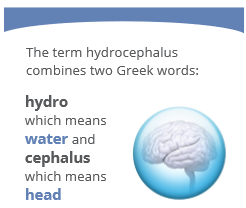Because it affects the brain, hydrocephalus can cause a wide range of symptoms ranging from difficulty breathing, poor muscle coordination and mobility challenges to problems with vision, fatigue, headaches, seizures, incontinence and hormonal imbalances. Challenges with learning, social skills, memory and problem solving are among the most common complications of hydrocephalus. Individuals with the condition may require modifications to the way they are taught, especially when it comes to learning new things at school or work.

